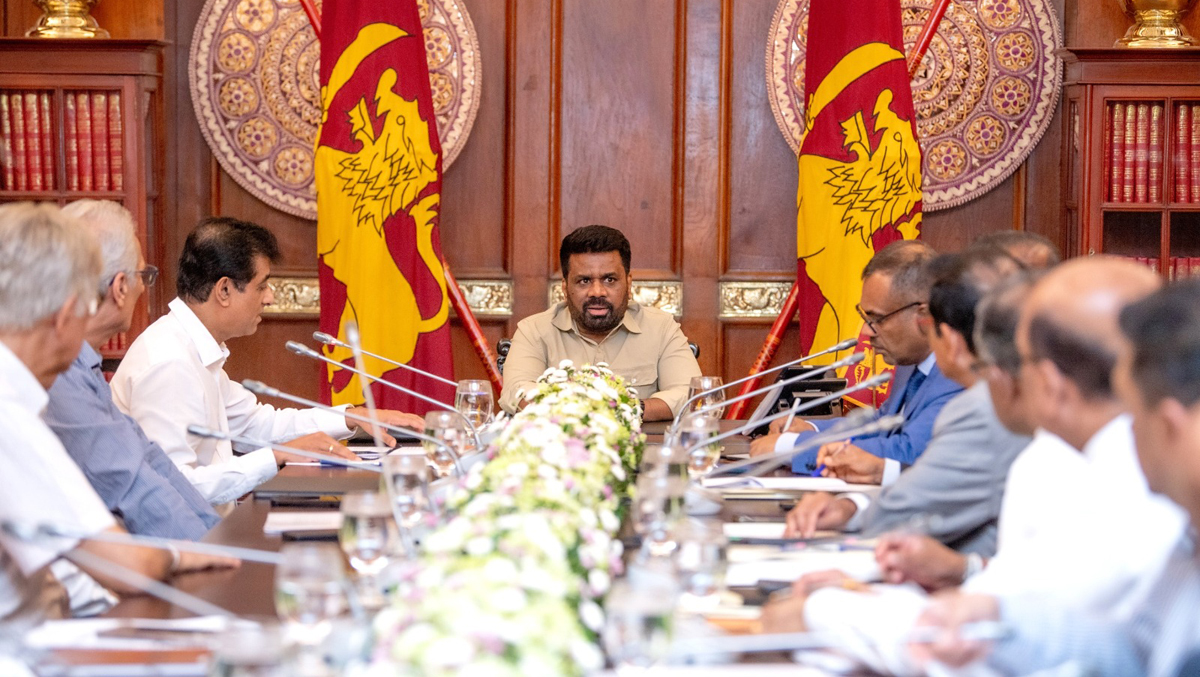Sri Lanka is set to begin urgent discussions with the United States in a bid to alleviate the 44% tariffs imposed by former President Donald Trump on its exports. The imposition of these tariffs, which have strained Sri Lanka’s trade relations with the U.S., has prompted the island nation to establish a committee aimed at reviewing the impact and suggesting possible solutions.
During a meeting at the Presidential Secretariat, President Anura Kumara Dissanayake, along with the newly appointed committee, discussed the strategic response to the U.S. tariffs and the steps that should be taken moving forward. The committee is tasked with evaluating the tariff situation and proposing measures to address the challenges Sri Lanka faces in maintaining its export competitiveness.
“Prompt discussions will be initiated with the U.S. government to explore potential relief measures,” a statement from the President’s media office confirmed. This decision follows concerns over the negative impact on Sri Lanka’s export industries, which are struggling to maintain market access amid rising costs and decreased demand.
Sri Lanka’s Protectionist Measures Under Scrutiny
Sri Lanka has long employed protectionist economic policies, imposing large taxes to shield certain politically connected businesses and farmers. While this has helped certain domestic sectors, it has also led to higher costs for consumers and made Sri Lankan exports less competitive on the global stage.
These trade barriers have been further exacerbated by U.S. tariffs, which have now placed an additional burden on the nation’s export-driven economy. According to experts, this situation underscores the need for a broader strategic shift in Sri Lanka’s trade policies.
The newly formed committee, which includes key government officials such as Senior Economic Advisor Duminda Hulangamuwa, Finance Secretary Mahinda Siriwardana, and Central Bank Governor Nandalal Weerasinghe, is expected to play a pivotal role in charting a way forward. Industry leaders, including representatives from the Export Development Board, the Ceylon Chamber of Commerce, and major companies like Brandix and MAS Holdings, are also part of the discussions.
U.S. Tariffs: A Double-Edged Sword for Global Trade
The imposition of tariffs by former U.S. President Trump has been a point of contention globally. Trump’s “America First” trade policy was designed to reduce the U.S. trade deficit by imposing tariffs on imports, with the goal of making foreign countries more likely to negotiate favorable trade deals. However, this protectionist approach has also sparked tensions, as countries like Sri Lanka now find themselves facing retaliatory measures that threaten their export economies.
While Trump’s administration argued that tariffs would prompt other countries to comply with U.S. trade demands, critics argue that such measures harm global trade dynamics and contribute to inflationary pressures in the U.S. itself.
As Sri Lanka looks for solutions, its leadership faces a delicate balancing act: addressing domestic concerns over protectionism while navigating the complexities of international trade relations in an increasingly interconnected world.


